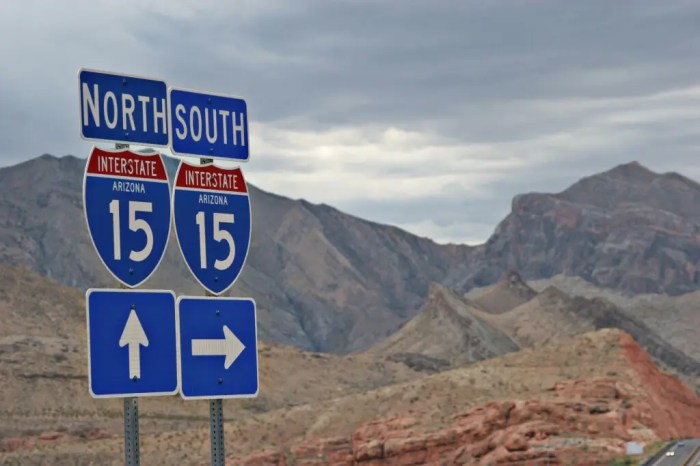Arizona auto accident laws provide a comprehensive framework to ensure justice and compensation for those involved in car crashes. This guide delves into the legal complexities, liability determination, damages, procedures, and special considerations unique to Arizona’s legal landscape.
Understanding the intricacies of Arizona auto accident laws empowers individuals to protect their rights, navigate the claims process effectively, and seek fair compensation for their injuries and losses.
Determining Liability and Fault: Arizona Auto Accident Laws

Establishing liability and fault in auto accident cases is crucial for determining legal responsibility and compensation. Negligence, a legal concept, plays a central role in assigning fault.
Arizona auto accident laws are designed to protect drivers and passengers in the event of a collision. However, these laws can vary from state to state. For example, in Illinois , drivers are required to carry a minimum amount of liability insurance.
This is in contrast to Arizona, where drivers are not required to carry any liability insurance. As a result, it is important to be aware of the auto accident laws in the state in which you are driving.
Negligence refers to the failure to exercise reasonable care, resulting in harm to others. In auto accident cases, negligence can manifest in various ways, such as speeding, reckless driving, or failing to obey traffic laws. When negligence is proven, the negligent party may be held liable for the damages caused.
Arizona auto accident laws can be complex and confusing, especially after a serious injury. That’s why it’s important to contact an experienced attorney like Fielding Law Auto Accident Attorneys Mesquite. They can help you understand your rights and options, and fight for the compensation you deserve.
Arizona auto accident laws are designed to protect victims, but navigating them can be difficult without legal guidance.
Factors Considered in Assigning Fault
When determining fault, courts consider multiple factors, including:
Driver Conduct: Actions and decisions made by drivers, such as speeding, intoxication, or distracted driving.
Traffic Violations: Violations of traffic laws, such as running red lights or stop signs, can indicate negligence.
Road Conditions: Poor road conditions, such as potholes or icy surfaces, may contribute to accidents and affect fault determination.
Legal Defenses and Exceptions to Liability
In some cases, legal defenses or exceptions may limit or negate liability. These include:
Contributory Negligence: If the injured party’s own negligence contributed to the accident, their compensation may be reduced or barred.
Comparative Fault: In some jurisdictions, fault is apportioned between multiple parties based on their respective negligence.
Damages and Compensation
In Arizona, victims of auto accidents may seek compensation for damages incurred as a result of the negligence of another party. These damages can include medical expenses, lost wages, and pain and suffering.
Damages are classified into two categories: economic and non-economic. Economic damages are those that can be easily calculated and assigned a monetary value, such as medical bills, lost wages, and property damage. Non-economic damages are those that are more difficult to quantify, such as pain and suffering, emotional distress, and loss of enjoyment of life.
Arizona auto accident laws can be complex and confusing. If you’ve been injured in a car accident in Arizona, it’s important to speak to an experienced attorney. Georgia auto law auto accident attorneys can help you understand your rights and options.
They can also help you get the compensation you deserve for your injuries.
Methods of Calculating Damages
The methods used to calculate damages vary depending on the type of damages being claimed. Economic damages are typically calculated by adding up the actual expenses incurred, such as medical bills and lost wages. Non-economic damages are more difficult to calculate and are often determined by a jury based on the severity of the injuries and the impact on the victim’s life.
Arizona auto accident laws dictate the legal responsibilities and rights of drivers involved in collisions. These laws vary from state to state, so it’s important to be familiar with the specific regulations in your jurisdiction. For instance, connecticut auto accident laws differ from Arizona’s in terms of fault determination and insurance coverage.
Understanding the nuances of these laws can help you navigate the legal process and protect your rights in the event of an accident.
Role of Insurance Coverage and Limits, Arizona auto accident laws
The amount of compensation that a victim can recover is often limited by the at-fault party’s insurance coverage. Arizona law requires drivers to carry a minimum amount of liability insurance, but the limits of coverage can vary significantly. If the at-fault party’s insurance coverage is insufficient to cover the full amount of damages, the victim may be able to seek compensation from their own insurance company under their uninsured/underinsured motorist coverage.
Legal Procedures and Processes

Filing an auto accident claim involves specific steps, deadlines, and legal procedures. Understanding these processes is crucial for protecting your rights and ensuring a fair settlement.
After an accident, promptly notify your insurance company and the other driver’s insurer. Arizona law requires you to report accidents involving injuries, property damage, or hit-and-run incidents to the Department of Transportation (ADOT) within 10 days.
Role of Attorneys and Insurance Adjusters
Attorneys can represent you throughout the claims process, providing legal advice, negotiating with insurance companies, and advocating for your interests. Insurance adjusters, employed by insurance companies, investigate claims, determine liability, and make settlement offers.
In Arizona, drivers involved in an auto accident must comply with specific laws regarding insurance, fault determination, and compensation. While each state has its own unique set of regulations, it’s essential to understand the nuances of auto accident laws in other states as well.
For instance, neighboring Indiana has a different approach to fault determination, which may impact the outcome of a cross-border accident. To delve deeper into the specific laws governing auto accidents in Indiana, refer to this comprehensive guide: indiana auto accident laws.
By understanding both Arizona and Indiana’s auto accident laws, you can navigate the legal complexities and ensure your rights are protected.
Resolving Claims
Claims can be resolved through negotiation, mediation, or litigation. Negotiation involves direct discussions between you and the insurance company. Mediation involves a neutral third party facilitating settlement discussions. Litigation, the most adversarial option, involves filing a lawsuit and proceeding through the court system.
Special Considerations

Arizona auto accident laws address specific situations that require unique legal considerations. These include hit-and-run accidents, uninsured motorists, and commercial vehicle accidents.
Additionally, the legal implications of distracted driving, impaired driving, and other traffic offenses are significant and can impact liability and compensation in auto accident cases.
Hit-and-Run Accidents
In Arizona, leaving the scene of an accident is a crime. Drivers involved in a hit-and-run accident must immediately report it to the police and provide their contact information. Failure to do so can result in criminal charges and civil penalties.
Uninsured Motorists
Arizona requires drivers to carry auto insurance. However, some drivers may be uninsured or underinsured. In such cases, victims of auto accidents may be able to seek compensation through the Arizona Motor Vehicle Division’s Uninsured Motorist Fund.
Commercial Vehicle Accidents
Commercial vehicle accidents involve large trucks or buses. These accidents often result in severe injuries or fatalities. Arizona has specific laws and regulations governing commercial vehicle drivers and their employers, including requirements for driver training, vehicle maintenance, and hours of service.
Distracted Driving
Distracted driving, such as using a cell phone while driving, is a major cause of auto accidents in Arizona. It is illegal to text while driving, and drivers can be cited for other forms of distracted driving, such as eating or adjusting the radio.
Impaired Driving
Driving under the influence of alcohol or drugs is a serious offense in Arizona. Drivers convicted of DUI face severe penalties, including fines, jail time, and loss of license.
Resources for Victims
Victims of auto accidents in Arizona have access to various resources and support, including legal aid, victim compensation funds, and medical assistance. Legal aid organizations can provide free or low-cost legal representation to victims who cannot afford an attorney.
Questions and Answers
What are the common types of damages recoverable in Arizona auto accident lawsuits?
Medical expenses, lost wages, pain and suffering, property damage, and emotional distress are common types of damages recoverable.
How is fault determined in Arizona auto accident cases?
Fault is typically determined based on negligence, considering factors such as driver conduct, traffic violations, and road conditions.
What are the legal defenses to liability in Arizona auto accident cases?
Contributory negligence, comparative fault, and assumption of risk are common legal defenses to liability.




